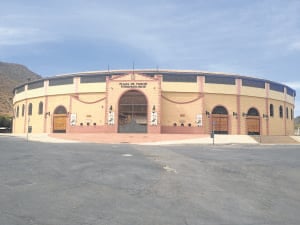By Rob Horgan
ANDALUCIA has kept its finger on the pulse of tourism trends for more than half a century, learning to adapt to the changing needs of incoming tourists.
In the Sixties it was package holidays, with Torremolinos in the vanguard; in the Nineties and Noughties, rural and residential tourism took over, with tourists snapping up holiday homes along the coast or heading for the hills to stay in a casa rural.
Now the region is poised to reinvent itself anew by pouncing on the latest vacation trend: halal tourism, a label that reflects the specific travelling habits and expectations of Muslim tourists.
Halal tourism is set to boom over the next decade, with the industry currently valued at a staggering €108 billion, and expected to grow to €149 billion by 2020.
The concept of ‘halal’ – meaning ‘permissible’ in Arabic – has traditionally been applied to the specialised ritual of slaughtering livestock.
Today it also applies to other goods and services where Muslims have particular requirements, including cosmetics, clothing, pharmaceuticals and financial services.
The Granada Tourism Board has now teamed up with Spain’s National Tourism Board and Turkish Airlines to hold the first ever international halal tourism conference in Spain.
Taking place last week, the event brought together hotel groups, tour operators and tourism marketers from countries such as Saudi Arabia, Indonesia, Malaysia, Singapore, UAE, Turkey, France and the UK.
Following the conference, industry experts are now predicting that Andalucia will become a ‘hub of interest’ for Muslim holidaymakers.
Fazal Bahardeen, CEO of Crescentrating and HalalTrip – the world’s leading Halal travel website – told The Olive Press that Andalucia is ‘ideally positioned to capture a larger share of the growing Muslim market’.
He added: “The Islamic heritage offered in Andalucia is unique. We are seeing a huge interest in exploring this region from Muslim travelers.
“Making minor adjustments, like the availability of halal food, will make it a must-visit destination for this segment of travellers.”
According to Turespa – Spain’s national tourism agency – 81,000 tourists from Saudi Arabia, the UAE, Qatar and Kuwait travelled to Spain last year, spending an average of €145 per night for a hotel room.
But Andalucia will also be looking to promote halal tours closer to home, with around half a million Muslims currently residing in Spain and over 14 million living in the EU.
The two-day conference welcomed over 300 delegates from across the world to discuss one of the fastest-growing sectors of the industry.
After the conference, a two-day tour of Andalucia flaunted the region’s attributes as it seeks new ways to become more ‘Muslim-friendly’.






